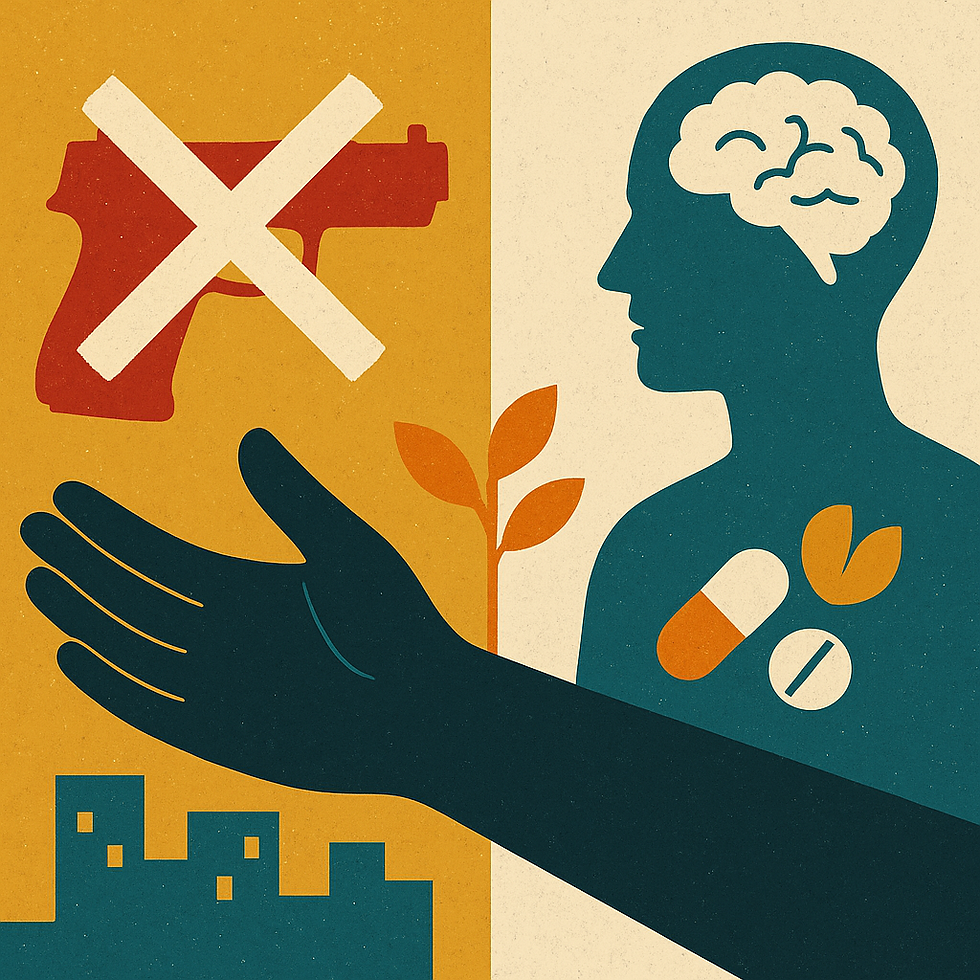We Can Solve the Drug Problem Without Resorting to Killing People
- Raymund Narag

- Aug 4, 2025
- 2 min read

It’s not a radical thought. It’s not even a new one. It’s just the one that keeps getting buried under the sound of gunfire and the haze of fear. Because we’ve been made to believe that the only way to fix our drug problem is through force. That the only way to cleanse our streets is through blood. That the only way to end addiction is to end the addict.
But there is another war. One that doesn’t need bullets. One that requires something far more radical than violence: thinking.
First, we wield the power of the criminal justice system—not like a bludgeon, but like a scalpel. Carefully, precisely. The police must arrest only those for whom they have done their homework. Not by hearsay, not by gut feel, not by planting evidence or manufacturing guilt, but through proper surveillance, proper investigation, proper procedures. Cases must be built like solid houses—brick by brick, fact by fact. No shortcuts. No frame-ups. No cardboard signs saying "pusher" hung on corpses on sidewalks.
And once they are in custody, let us not throw their humanity out with the bathwater. Let the accused be heard. Let their rights be respected. Let due process work. Let the Rule of Just Law, recently enshrined, be the guiding doctrine. Let the system breathe.
And then, rehabilitation. Not retribution.
Because people don’t use drugs in a vacuum. They use it for reasons. Some take them to stay awake for long shifts in the factories or on the roads. Some to blunt the pain of poverty. Some to escape the grinding monotony of slums without light, without options, without dreams. Some because their parents are out working, and the streets are the only guardians they know. Some because the community has long normalized what the law merely criminalized.
The answer, then, is not to kill the user. The answer is to understand them.
That means the government must do more than wage a war. It must build a peace. It must build systems that prevent addiction from taking root. Create jobs. Keep families whole. Provide daycare and after-school programs. Rebuild parks instead of jails. Fund community centers instead of detention centers. Give people a reason to live, not a sentence to die.
And yes, the courts, too, must evolve. Judges, prosecutors, public defenders—let them talk to each other, not just across courtroom benches, but across sectors. Build diversion programs. Offer options. Make drug treatment a pathway to healing, not a detour to punishment.
Let us not forget: not everyone who uses is a criminal. And not everyone who deals is evil. Sometimes, they are simply people who ran out of choices.
This is not rocket science. This is just common sense. The kind of sense we lose when we let fear rule the day and rage rule the night.
We can fix the drug problem. But only if we stop waging war on the people we’re trying to save.
Because the real war is not against drugs.
It’s against despair.
And that, unlike the killings, is a war worth fighting.





Comments